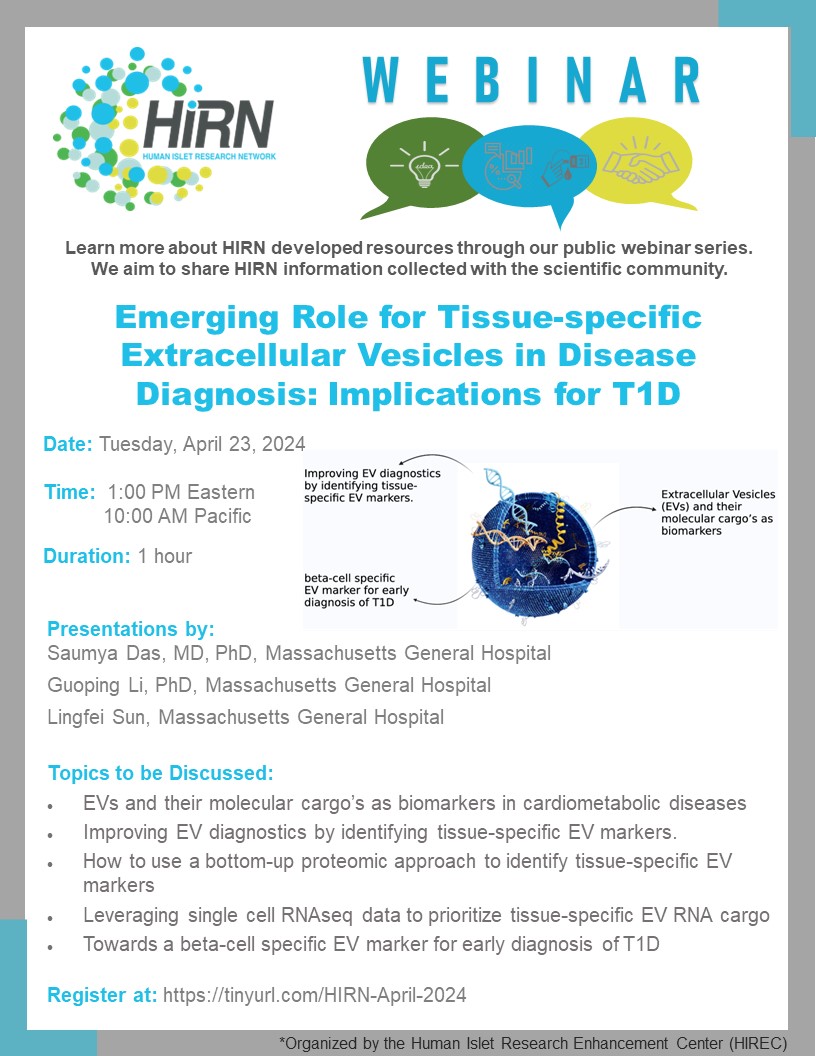Leaving Community
Are you sure you want to leave this community? Leaving the community will revoke any permissions you have been granted in this community.
[Recorded Webinar and Slides are Available Now!]dkNET Webinar: Estimating Relative Beta-Cell Function During Continuous Glucose Monitoring and Its Clinical Applications

*Watch recorded webinar here: https://youtu.be/MKgA02d7S2I
*Webinar slides: https://www.slideshare.net/dkNET/dknet-webinar-estimating-relative-betacell-function-during-continuous-glucose-monitoring-and-its-clinical-applications-03102023
dkNET New Investigator Pilot Program in Bioinformatics Awardee Webinar Series
Join dkNET Webinar on Friday, March 10, 2023, 11 am - 12 pm PST
Presenter: Joon Ha, PhD. Associate Professor, Department of Mathematics, Howard University, Washington DC.
Abstract
The most common form of diabetes, type 2 diabetes (T2D) is a failure of insulin-secreting pancreatic beta-cells to increase insulin to the level required to maintain normal blood glucose. Thus, identifying beta-cell function and insulin sensitivity in those who are at high risk is crucial to preventing and delaying the disease. Hyper-glycemic clamp and euglycemic hyper- insulinemic clamp are considered to be gold standard measures for these quantities. However, these two methods demand highly skilled labor and thus are cost-prohibitive. Glucose challenge tests have been used to estimate beta-cell function and insulin sensitivity. The product of beta-cell function and insulin sensitivity, termed the disposition index (DI), is of great value because it measures beta-cell function relative to insulin requirements. However, glucose challenge tests are expensive and time-consuming and therefore impractical to implement in large-scale clinical studies. To address this challenge, we developed a model disposition index (mDI estimated without insulin) that does not require insulin measurements during an oral glucose tolerance test (OGTT) (Ha et al., Diabetes 2021 (70) suppl. 1). mDI outperforms the conventional oral disposition index (oDI) at predicting progression to diabetes.
To further increase access and refine the assessments of beta-cell function, we are adapting our model to calculate a model disposition index using continuous glucose monitoring (CGM). CGM has been in the spotlight of diabetes management and has revolutionized the field of medicine as they are approved for glucose monitoring and clinical decision-making in patients with diabetes. CGM devices are relatively inexpensive compared to oral glucose challenge tests, accessible, and simple to use, especially in remote or free-living environments. The CGM device continuously measures interstitial glucose every 5 minutes and provides glucose profiles for 7-14 days. Thus, there are numerous data points compared to glucose challenge tests, but the abundant data points have not previously been used for estimating metabolic parameters. We compared mDI to two widely used CGM-derived metabolic parameters for assessing metabolic status and risk, mean glucose and glycemic excursion. Both mean glucose and glycemic excursion correlated strongly with mDI. The new approach promises to be cost- effective and easy to perform and therefore implementable in large-scale clinical studies. As for specific clinical applications, estimated model parameters during OGTTs identified ethnic differences in common pathways to T2D between Pima Indians and Koreans.
Dial-in Information: https://uchealth.zoom.us/meeting/register/tZ0tdOuhqj4oGdc2g8Eq_dssrZYUPzHtZo15
Upcoming webinars schedule: https://dknet.org/about/webinar





